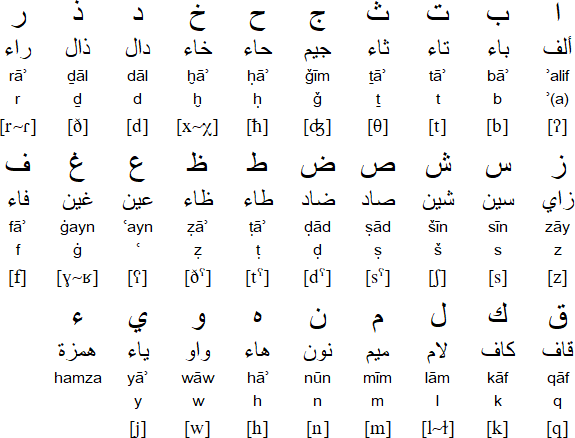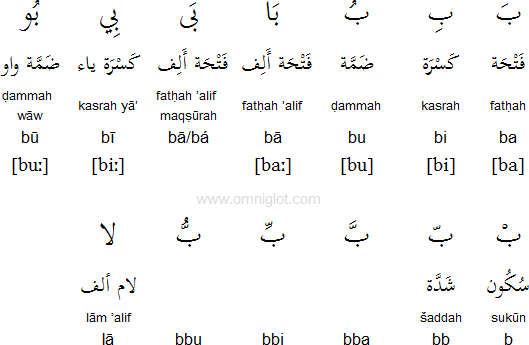Arabic|عربي Living
What is it?
The Arabic script evolved from the Nabataean Aramaic script. It has been used since the 4th century AD, but the earliest document, an inscription in Arabic, Syriac and Greek, dates from 512 AD. The Aramaic language has fewer consonants than Arabic, so during the 7th century new Arabic letters were created by adding dots to existing letters in order to avoid ambiguities. Further diacritics indicating short vowels were introduced, but are only generally used to ensure the Qur'an was read aloud without mistakes. There are two main types of written Arabic: Classical Arabic - the language of the Qur'an and classical literature. It differs from Modern Standard Arabic mainly in style and vocabulary, some of which is archaic. All Muslims are expected to recite the Qur'an in the original language, however many rely on translations in order to understand the text. Modern Standard Arabic (اللغة العربية الفصحى / al-luġatu l-ʿarabiyyatu l-fuṣḥā) - the universal language of the Arabic-speaking world which is understood by all Arabic speakers. It is the language of the vast majority of written material and of formal TV shows, lectures, etc. Each Arabic speaking country or region also has its own variety of colloquial spoken Arabic. These colloquial varieties of Arabic appear in written form in some poetry, cartoons and comics, plays and personal letters. There are also translations of the bible into most varieties of colloquial Arabic. Arabic has also been written with the Hebrew, Syriac and Latin scripts.
Alphabet:


Sample Text:

-------------------------------------------------------------------------------------------------
All human beings are born free and equal in dignity and rights. They are endowed with reason and conscience and should act towards one another in a spirit of brotherhood.
Greetings:
!مرحبا Hello!
كيف حالك؟ How are you?
!صباح الخير Good morning!
!يوم جيد Good day!
!مساء الخير Good evening!
!ليلة سعيدة Good night!
!وداعا Good bye!
Source: www.omniglot.com
Nenhum comentário:
Postar um comentário